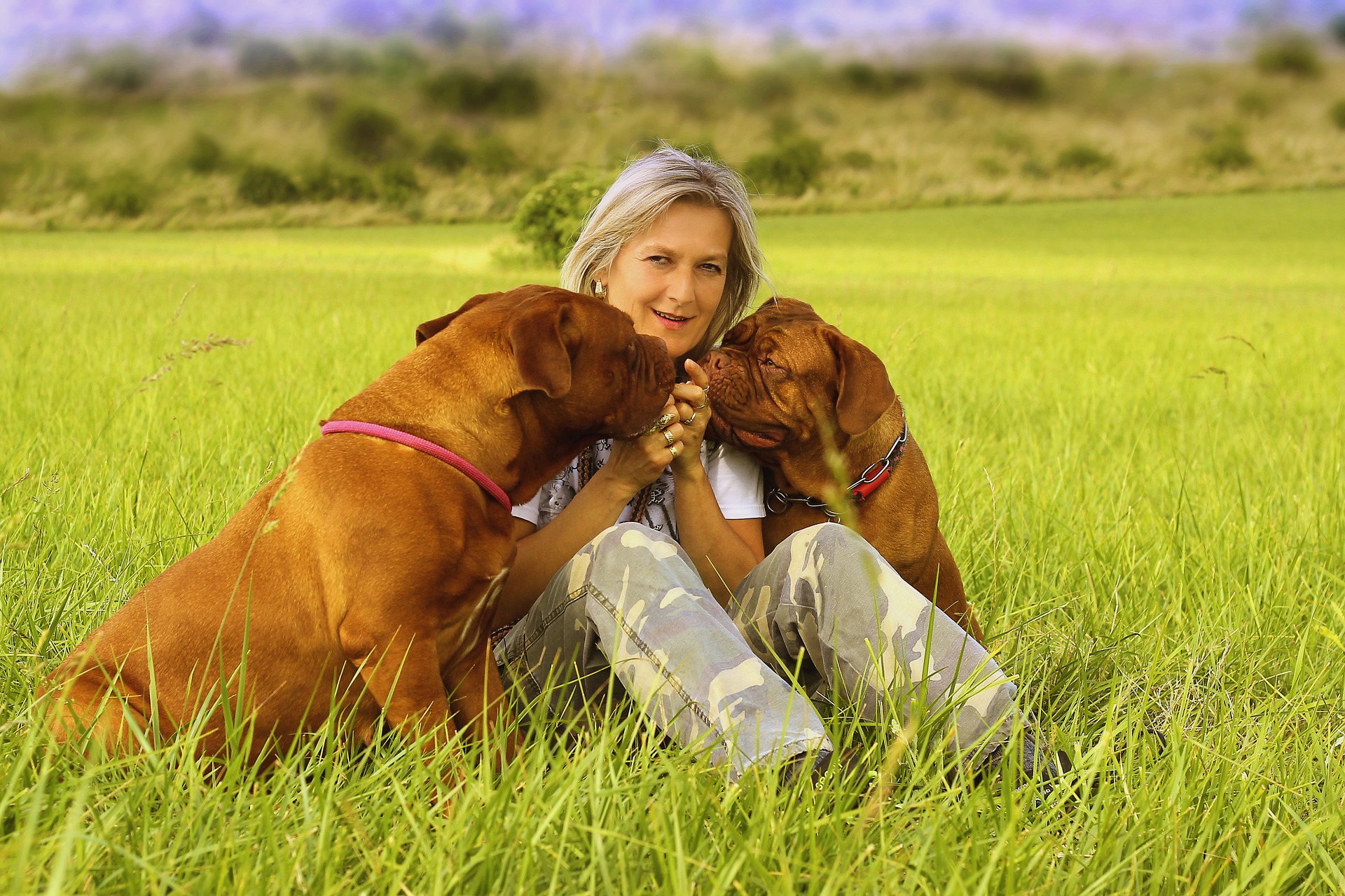Our dogs love us immensely–they get excited to see us when we come home and enjoy spending as much time with us as we will give them. However, this closeness can lead to your dog developing possessive, overprotective instincts towards their owner. Sometimes this manifests in harmless ways, like extreme cuddles or remaining by your side wherever you go. However, in other instances, your dog’s behavior may become aggressive.
Know the Signs of Overprotective Behavior
Overprotective behaviors develop incrementally over time, as owners unwittingly encourage them.
Imagine you are a dog: an unfamiliar person enters your house, and your owner begins interacting with them. You begin to growl and bark at them, and your owner turns their attention to you. You think this is good! They are paying attention to you, and that is a reward. They even pat your head and pet you to calm you–hooray! You will definitely act like this again next time.
If you notice your dog placing themselves between you and others, acting tense, or barking and growling, you should take steps to discourage overprotectiveness before it worsens.
Remember that YOU are in control. A fair amount of stubborn or defiant behaviors stem from owners giving their dog attention when they should be ignored. For instance, if your dog is begging for food and you slip them a scrap, they will see that as a reward. Next time they may act more boldly and snatch food from the counter. Some dogs bark incessantly when they want attention–and when owners give it to them, the dog will come to learn that they have control in that situation. Instead of rewarding these bad behaviors with attention, ignore your dog or move to another room. Refuse to pet them until they are performing the behavior you want–whether that is laying down instead of begging, or performing a trick before you decide to pat them.
Spend time apart. When you and your dog are constantly together, they may come to see the addition of any other person as a threat to your relationship. Begin crate training early so that your dog gets used to being apart from you. Start with short periods of time and ease into longer amounts to minimize the stress your dog feels as they learn to be separated. Additionally, you should make sure other members of your household help with feeding and playing with the dog. This will teach your pup not to be so attached to you.
Work on proper socialization. Dogs that are properly socialized get excited to meet new people and animals. They understand that they don’t have to fear unfamiliar faces, and thus that you don’t need protecting. You can check out our recent blog post on ways to socialize your dog here.
Obedience training. Most behaviors a dog exhibits are learned. Like toddlers, dogs are constantly observing our actions and creating associations with them. Whenever owners reward a behavior (regardless of whether they realize they’re doing it), that behavior is reinforced in the dog’s mind. With proper training, these undesirable behaviors can be un-learned and replaced with more appropriate ones. Additionally, your dog will come to understand that you truly are the one in command as the trust between you two grows.
Need help? Call Gulf Coast K9 Dog Training today to learn more about obedience training, play care and boarding.





